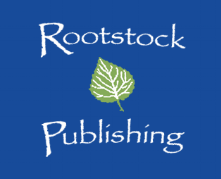Horodno Burning Receives Kirkus Review
In this historical novel, an unlikely Jewish couple—she’s an obsessed bibliophile and he can’t read—struggles under an increasingly antisemitic Russia in the late 19th century.
Esther Leving is a remarkable young woman—a voracious reader, she can write in six languages by the age of 15. She’s also defiantly independent and opinionated. Esther angrily chafes at the “subordination of women and persecution of non-believers” as well as the oppression experienced by Jews, a phenomenon she’s familiar with living in Horodno in the Pale of Settlement in the Russian Empire. For all her intellectual liveliness, Esther is essentially friendless, hampered by an injured foot and completely disinterested in the “array of suitors” her parents send her way. She pines to be a writer and expresses disdain for the restrictions of marriage. But when she meets Bernard Garfinkle, the son of a vodka distiller, she falls in love, even after she learns his peculiar secret—despite a nimble mind, he never learned to read, a failing that makes for an odd pairing astutely captured by Freed-Thall: “I love a boy who can’t read. If I hadn’t gotten to know him first, he’d be a book returned to the shelves unopened. Single words aren’t the problem, but when they gather, all talking at once, he lurches forward, pauses, sounds out, only to lose his way and backtrack.”
Esther agrees to teach Bernard to read and opens a bookshop he builds for her. But with the ascension of Alexander III comes virulent, violent anti-Jewish sentiment, a historical development rigorously researched and dramatically conveyed by the author. Nevertheless, this novel is at its core a love story—Freed-Thall sensitively limns the ways in which the couple’s devotion transcends their deep differences, not just literary, but also religious. Bernard is devoutly spiritual, and Esther tends to see religious belief as an instrument of thoughtless prejudice. This is a captivating book, historically authentic and movingly romantic.
A mesmerizing tale of love in a time of extraordinary trials.

